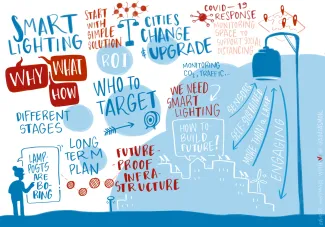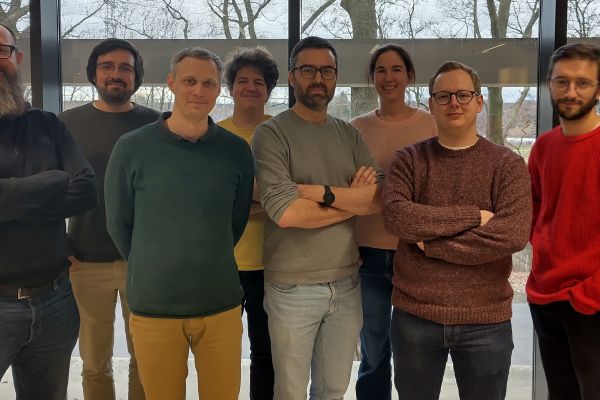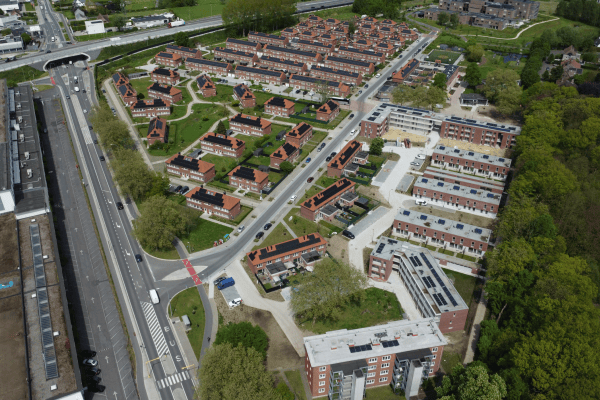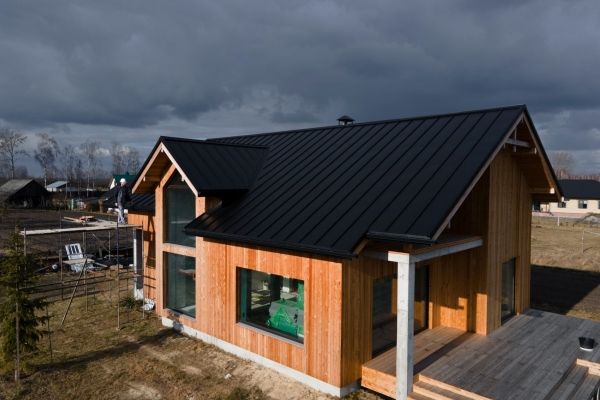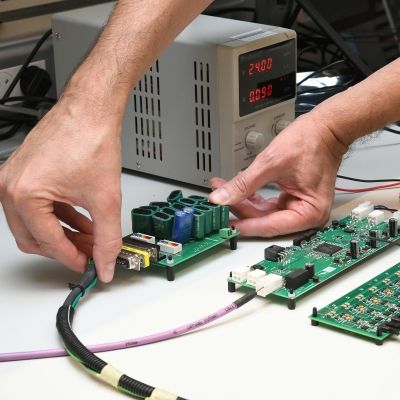A European match-making platform for smart cities
The Smart Cities Marketplace is where ideas, solutions and best practices are shared and disseminated across the broad European smart city community. Through the Explore, Shape and Deal phases, project proposals are conceived, before becoming more mature and then fully-fledged. That way, they can be matched with a suitable investor at the end of the journey. The European initiative, coordinated by VITO, seeks to bring as many cities and municipalities as possible on board, including smaller ones. ‘We are currently mainly focusing on small and medium-sized cities, as they are under-represented for now.’
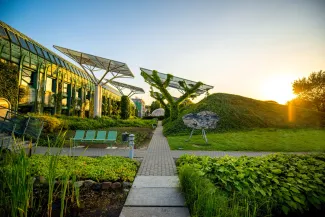
The Smart Cities Marketplace was set up in 2019 following the merger of two existing smart city initiatives of the European Commission: the Smart Cities Information System (SCIS) and the Marketplace of the European Innovation Partnership on Smart Cities and Communities (EIP-SCC). ‘The goal of the Commission was to bring together ideas, knowledge and experience, but also stakeholders, as much as possible in a vibrant community,’ explains Tatiana Pasquel Garcia of VITO/EnergyVille. ‘In this regard, the Commission wanted to streamline the broad approaches to smart cities at the European level.’
The smart city solutions database by SCIS was merged with the more community-based Marketplace of EIP-SCC (which primarily brought stakeholders together), thereby illustrating the ambition of the Commission. The new Smart Cities Marketplace was set up by a consortium led by VITO/EnergyVille.
You can also listen to this article on Spotify (Dutch only):
Explore, Shape and Deal
The new initiative got off to a good start and has since been extended and broadened. There are already well over 100 ‘investment-ready’ smart-city projects, good for more than half a billion euros in investment funds — although admittedly, this includes projects from prior to the merger in 2019.
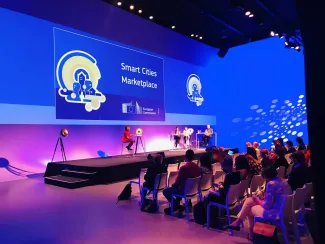
Before a project is ready for investment, it will have come a long way within the Smart Cities Marketplace. The journey goes through three different project phases: Explore, Shape and Deal. The first phase is all about inspiration. What exactly does a smart city entail? Those kinds of questions are answered at this stage. Building on the SCIS database, among other things, stakeholders - which can be local governments but also companies, investors or researchers - find a market for ideas where they can get inspiration.
‘In that respect, they can learn not only from success stories, but also from mistakes,’ highlights Birgit Vandevelde of VITO/EnergyVille. ‘We want to avoid repeating the same mistakes, but also avoid that stakeholders try to reinvent the wheel. That’s why we also include feedback in the Explore phase from projects that have already gone through this phase.’ This information is already presented in bite-size format in the Solution Booklets, among other places, and it will also be added to a dedicated wiki.
During the Shape phase, the feasibility of projects is explored, and above all enhanced. ‘This is in close cooperation with experts from the broad network we maintain,’ explains Pasquel Garcia. ‘We bring experts together in strongly results-driven focus and discussion groups, working around topics proposed by the stakeholders themselves. This should lead to more concrete results with which we can then get started.’
The focus during this stage is very much on a tailored approach to projects and stakeholders. Pasquel Garcia: ‘Initially, the support was more limited to providing feedback, for example by highlighting areas where there was room for improvement. Now our experts really sit down together in a one-to-one approach with the cities to see how a project proposal can be improved’. It shows that the Smart Cities Marketplace is still evolving as well.
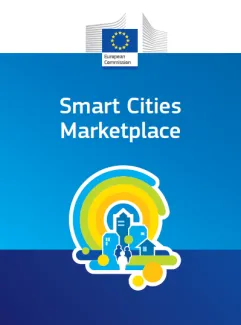
Focus on small and medium-sized cities
The Smart Cities Marketplace is now into its second phase. Initially, the initiative ran until 2022, but this was extended to 2026. In this second phase, there will be more focus on small and medium-sized cities and municipalities, with populations of up to around 100,000. Vandevelde: ‘Currently, these cities are sometimes rather out of the picture, and are seriously under-represented in project proposals. Nevertheless, most Europeans live in small and medium-sized cities.’ There will be a proactive approach to these cities.
The project officer in charge at the European Commission, Georg Houben, is also emphasising this focus on small and medium-sized cities. ‘It is important that the Smart Cities Marketplace continues its work with a specific focus in this area, i.e. cities that do not seem to have the necessary capacity or knowledge to design and implement a long-term sustainable urban development plan. Collaborations with other EU-level initiatives such as the Covenant of Mayors, CIVITAS, Living-in.eu and the Horizon Europe Mission on Climate-Neutral and Smart Cities, will help in this regard.’
Once a project has gone through the Shape phase, it is mature enough to be linked to an investor. This match-making takes place in the Deal phase. The Smart Cities Marketplace currently has around 20 investors linked to it, mostly private parties. ‘They are investors with a high level of engagement within our network, so they are genuinely looking for a successful match,’ explains Pasquel Garcia. Moreover, most of them invest in specific areas (e.g. energy or mobility) and this is taken into account in the Deal phase. Experts from the Smart Cities Marketplace also help to determine the investment needs, for example by accurately calculating the size of the funding required.
In the meantime, efforts are made to reach out to, and get more and more cities or other stakeholders on board with the smart city story. A good example is the forum organised every year by the Smart Cities Marketplace. Existing smart city projects and the knowledge obtained from them will be explained, and experts will also be present to help shape ideas. Time will also be set aside during the forum for effective Deal meetings with the investors from the network. ‘We also have a presence at international events, such as the Smart City Expo World Congress, which took place in Barcelona in November 2022. And we keep the community continually informed of the latest developments via our Twitter and LinkedIn accounts,’ concludes Vandevelde.
